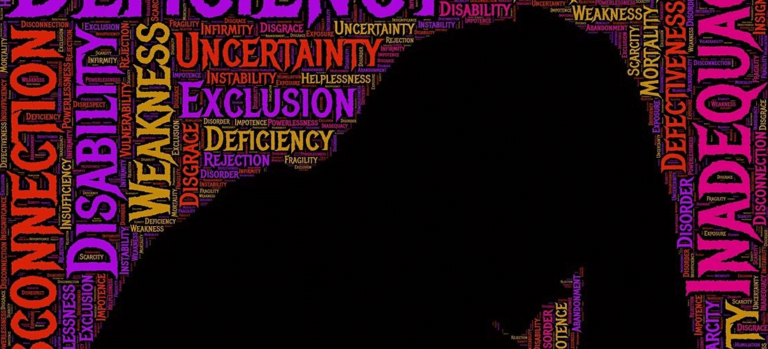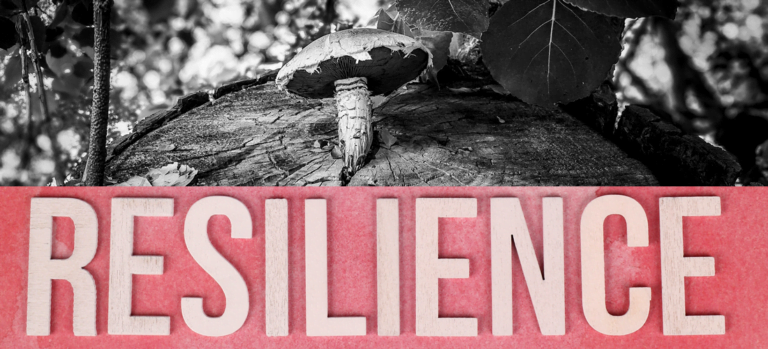In the context of relationships, solitude refers to the state of being alone without feeling lonely. It’s the much-needed personal space that allows individuals to reconnect with themselves, process their thoughts and feelings, and maintain their individuality.
On the other hand, boundaries represent the invisible lines that define personal comfort, limit emotional intrusion, and guide how individuals want to be treated by others. Solitude and boundaries are crucial in preserving respect and understanding in a relationship, promoting healthier interactions, and preventing emotional exhaustion or resentment.
Maintaining a healthy balance between togetherness and personal space is crucial in any relationship. On one hand, togetherness fosters a sense of companionship, allowing for the sharing of experiences, growth, and mutual support. On the other hand, personal space is equally vital, providing a chance for individuality and self-exploration, which are essential for personal growth.
Learning to navigate this balance can significantly enhance the quality of relationships, fostering a strong bond based on mutual respect and understanding.
Introducing solitude and boundaries into relationships might initially seem counter-intuitive. However, these two concepts can significantly strengthen and enrich relationships. Embracing solitude allows individuals to cultivate self-awareness and establish their identity outside of their relationships.
Meanwhile, setting healthy boundaries ensures respect for individual space and fosters mutual understanding, which are both vital for the longevity and quality of any relationship. In essence, solitude and boundaries are not barriers within relationships, but rather building blocks for deeper connections.
Understanding Solitude in Relationships
Within the context of a relationship, solitude refers to the practice of intentionally spending time alone, independent of one’s partner. This is not to be conflated with loneliness; rather, solitude in a relationship is about nurturing individual growth and self-reflection. It serves as a platform to connect with one’s own interests, hobbies, and thoughts, away from the influence of the partner.
Acknowledging the value of solitude does not diminish the importance of togetherness in a relationship but underscores the fact that a healthy relationship thrives on a balance of shared experiences and individual moments.
Spending time alone can be a powerful catalyst for personal growth and self-awareness. Solitude affords us the opportunity to reflect on our thoughts, feelings, and experiences, enabling introspection and fostering a deeper understanding of self.
It provides a quiet space in which we can gain clarity about our values, goals, and aspirations, and make conscious decisions that align with our true selves. Moreover, time alone can enhance our emotional intelligence, as it allows us to better recognize, understand, and manage our own emotions.
Solitude can also boost our creativity and problem-solving skills, as it encourages independent thinking and allows us to explore ideas and solutions without external influence or distraction. Overall, the act of spending time alone is a powerful tool in fostering self-awareness and promoting personal growth.
A common misconception about solitude is that it isolates individuals and weakens their relationships. However, studies show that solitude, when utilized constructively, can enhance one’s self-awareness and understanding of their needs, desires, and values. This self-understanding can improve communication and deepen connections in relationships, leading to more meaningful bonds.
Solitude does not equate to loneliness. It entails a deliberate choice to spend time alone to recharge, reflect, or engage in solo activities, unlike loneliness, which is an emotional state of feeling unseen, disconnected, or unwanted.
The Role of Boundaries in Healthy Relationships
Boundaries refer to the mental, emotional, and physical limits that individuals set in order to protect themselves from being manipulated, used, or violated by others. These boundaries are essential in maintaining healthy dynamics in various relationships including familial, romantic, and professional ones. When boundaries are respected, they help in creating a balanced environment where all parties understand and value each other’s personal space and individuality. Consequently, it fosters mutual respect, understanding, and overall well-being.
Establishing clear and respectful boundaries is essential for fostering trust and mutual understanding. These boundaries delineate the expectations and responsibilities of each party, thereby minimizing potential confusions and misunderstandings. When boundaries are respected, it signals a recognition and appreciation for the other party’s individuality, space, and rights. This builds trust as it shows a commitment to preserving the dignity and respect of the relationship. Furthermore, clear boundaries facilitate open and honest communication, further deepening mutual understanding and fostering a healthy, balanced relationship.
Establishing boundaries is a crucial aspect of maintaining healthy relationships and ensuring personal wellbeing. However, many encounter challenges in this area due to fear of rejection, guilt, or perceived selfishness. It’s important to remember that setting boundaries is not a rejection of others, but rather an act of self-care. Here are a few strategies to help overcome these challenges:
- Clear Communication: Clearly articulate your needs and expectations to others. This helps prevent misunderstandings and ensures others understand your boundaries.
- Self-Affirmation: Remind yourself that it’s okay to say no. You are not responsible for others’ happiness, and it’s important to prioritize your own wellbeing.
- Consistency: Hold firm to your boundaries. Others may try to push or disregard them, but consistency reinforces their importance.
- Seek Support: If you’re having trouble setting boundaries, don’t hesitate to seek support from a trusted friend, family member, or professional counselor. They can provide valuable perspective and encouragement.
Balancing Togetherness and Solitude
Achieving a healthy balance between spending time with others and enjoying solitude is crucial for personal development and well-being. Engaging in social activities enhances our emotional intelligence, helps us understand different perspectives, and fosters a sense of belonging.
However, solitude offers its own set of benefits. It provides an opportunity for introspection, self-discovery, and the time to pursue personal interests. Too much social interaction can feel overwhelming and draining, while excess solitude can lead to feelings of isolation. Therefore, maintaining a balance between the two can result in a more enriched and balanced life.
In a relationship, open communication is key, especially when discussing personal needs, such as the necessity of alone time. Here are some tips to help you communicate such needs effectively, without causing harm to your relationship:
- Be Honest, Yet Tactful: Explain your need for solitude without making your partner feel neglected. It’s not about them, it’s about your personal need to recharge.
- Assure Them of Your Love: Assure your partner that your need for alone time does not reflect on your feelings for them. You love them, but you also enjoy time to yourself.
- Plan Together: Plan your alone time and make sure it doesn’t interfere with your couple time. Balance is key.
- Express your Needs in a Positive Way: Frame your alone time as a way to rejuvenate and be a better partner, not as a way to get away from them.
- Reassure: Regularly reassure your partner that these moments of solitude are essential to your well-being and will ultimately strengthen your relationship. Regular communication will prevent feelings of neglect or rejection.
Embracing and supporting each other’s individual interests and hobbies strengthens interpersonal relationships and fosters personal growth. It demonstrates respect and understanding, which are vital elements of a healthy relationship. When we support the interests of those around us, we not only contribute to their happiness and satisfaction, but we also broaden our own perspectives and enrich our own lives. Remember, investing in the interests of others is, in its own way, an investment in ourselves.
Setting and Respecting Boundaries
Setting and communicating boundaries with your partner is a critical aspect of a healthy relationship.
Identify your boundaries
The first step is to understand and acknowledge your own needs, desires, and limits. Be clear about what makes you comfortable and what doesn’t.
Communicate clearly
After identifying your boundaries, communicate them clearly and assertively to your partner. It’s essential to use ‘I’ statements to avoid blaming or accusing, for example, ‘I feel uncomfortable when…’
Listen actively
Just as it is important for you to communicate your boundaries, it is equally important to listen to your partner’s boundaries. Active listening promotes understanding and empathy.
Respect each other’s boundaries
Boundaries are not up for debate. Each partner should respect and accept the other’s boundaries without exception.
Revisit regularly
People change and grow, and so do their boundaries. It’s a good idea to revisit your boundaries regularly to ensure they still serve your current needs and situation.
Respecting each other’s boundaries is crucial in maintaining healthy relationships, be they personal or professional. Boundaries delineate what is acceptable and what isn’t in our interactions with others. They serve as a guide to understanding each other’s needs, preferences, and capacities.
It’s important not to take these boundaries personally. Rather than viewing them as an affront, see them as a sign of self-awareness and self-respect. When we respect and honor each other’s boundaries, we cultivate an environment of mutual trust and understanding. This fosters better communication, reduces conflict, and strengthens our connections.
Establishing boundaries often leads to potential conflicts, especially when such limits challenge established patterns of interaction. These conflicts can emerge in various forms, such as resistance, misunderstanding, or resentment. However, handling these disagreements constructively is critical. Open and honest communication is the first step; discuss the necessity of the boundary and the benefits it brings to all parties involved.
If resistance persists, employing negotiation skills and finding a compromise can be effective. Maintaining consistency in enforcing the boundaries will gradually foster respect and understanding among all parties involved. Finally, remember that it’s okay to seek external help, for instance, a mediator or a counselor, whenever conflicts escalate beyond manageable levels.
The Impact on Intimacy and Trust
Healthy solitude and boundaries in a relationship can serve as the bedrock for fostering intimacy and trust. By setting clear perimeters, relationships can gain structure, allowing individuals to understand and respect each other’s personal space and needs. This respect, in turn, nurtures a sense of trust, reinforcing the bond between individuals.
Healthy solitude offers a chance for personal reflection and growth, which contributes to a stronger sense of self. When shared with a partner, this enhanced self-awareness can lead to deeper intimacy, fostering a more authentic and meaningful connection.
Feeling secure in one’s space is crucial in fostering a deep emotional connection with a partner. This security provides more than just physical comfort; it offers a safe haven for sharing thoughts, ideas, and feelings without fear of judgment or rejection. In this environment, vulnerability becomes possible, and with it comes increased trust and intimacy.
By creating a shared space marked by safety and acceptance, couples can engage in open communication and mutual support, strengthening their bond and encouraging a more profound emotional connection.
When to Seek Professional Help
Professional guidance from a therapist or counselor can be extremely beneficial when setting boundaries in relationships, especially in circumstances where individuals find it challenging to establish or maintain these boundaries.
For instance, if a person regularly feels overwhelmed, stressed, or taken advantage of in relationships, or if their attempts to set boundaries are met with resistance or negative reactions, it may be time to seek professional help.
Additionally, if past traumas or mental health concerns make boundary-setting difficult, a therapist or counselor can provide the necessary tools and strategies to navigate these obstacles. These professionals offer a safe, non-judgmental environment to explore personal feelings and to gain insights into one’s behavior, thereby helping individuals to establish healthy, respectful boundaries in their relationships.
Final Thoughts
Solitude plays a vital role in cultivating healthy relationships by promoting self-awareness and personal growth. It offers a safe space to reflect, recharge, and gain clarity on personal desires and boundaries. This self-understanding enhances communication and fosters mutual respect in relationships.
Meanwhile, boundaries are integral to maintaining individual identity and preventing emotional exhaustion. By setting clear limits on what is acceptable and unacceptable behavior, they safeguard personal space and foster mutual respect. Hence, both solitude and boundaries are key elements in nurturing healthy, balanced relationships.
In life, relationships play a pivotal role, offering companionship, joy, and support. Yet, while fostering unity is crucial, it’s equally important to encourage personal growth within relationships. Growing together doesn’t mean losing one’s individuality; instead, it signifies the harmonious co-existence of togetherness and personal development.
So, embrace your journey together, cherishing each shared moment, while also honoring your unique paths of self-discovery and growth. This balance will not only strengthen your bond but will also enrich your experiences, creating a partnership that’s both fulfilling and empowering.










